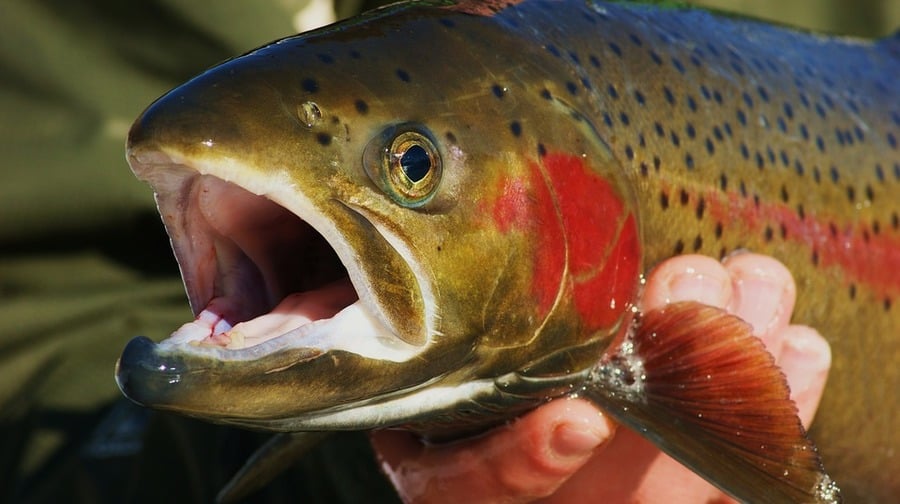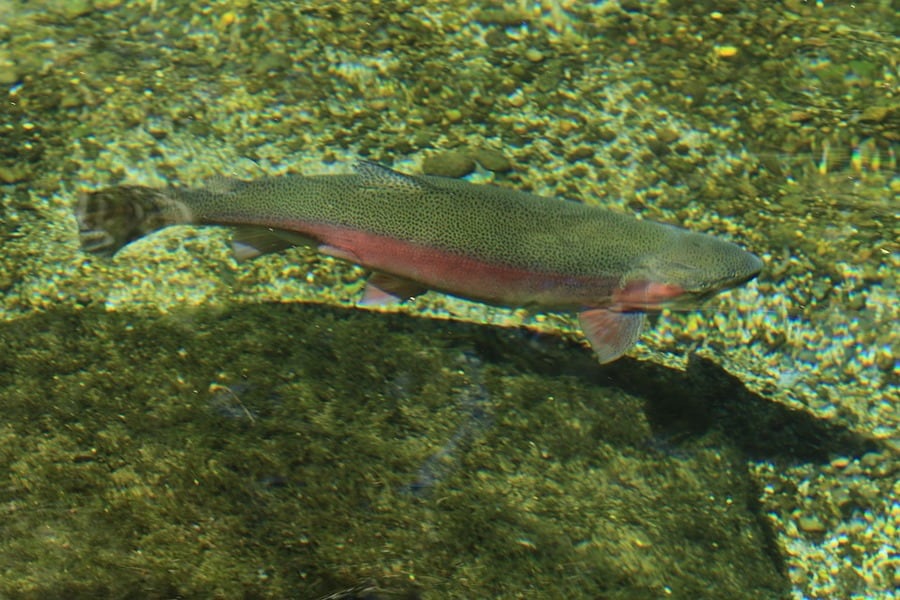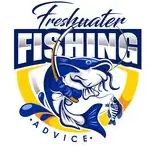Best Time of Day to Catch Trout (All Seasons Evaluated)
Leave a comment after this article and let’s talk more about trout fishing at different times. I’d love to read your feedback.
Trout fishing is one the most challenging and rewarding activities you enjoy outdoors. But fishing at the optimum time of day when trout are actively feeding can seem challenging. Most anglers make the mistake of fishing for trout from late morning through mid-afternoon and enjoy only marginal success. The truth is these are the worst times of day on most days to catch trout.
What is the best time of day for trout fishing? The best time of day to catch trout is early morning from dawn until 2 hours after sunrise and the second-best time of day is late afternoon from 3 hours prior to sunset until dusk.
Trout will feed throughout the entire day and into the night but early morning and late afternoon seem to offer the best trout fishing on most day and most seasons.
As you can see, by fishing only during the middle of the day, you are fish after and before the best fishing times. This article will go into much greater detail and show you how the best times vary from season to season and from say creeks and rivers to lakes and reservoirs.

We are focusing on cutthroat trout, rainbow trout, brook trout, and brown trout in this article. There will be a very tiny mention of the best time of day to catch lake trout at the end of this article.
Before we really dive into the best times to fish for trout, I want to recommend two incredible video courses that will make a better trout angler.
Check out this link here to view my complete trout fishing gear recommendation list, including rods, reels, baits, gear, etc. I have field tested a lot of trout gear and these are my recommendations.
Best Time of Day for Trout Fishing
Best Time of Day
The best time of day to catch trout is early morning followed by late afternoon. I have found that right before sunrise until roughly 2 hours after sunrise is the best time of the day to catch most species of trout.
The second best time of day for trout fishing is the late afternoon from 3 hours before sunset until dusk. Trout have very good reduced light vision which allows them to see a better contrast of color in reduced light and better depth perception as well.
This gives them a tactical advantage over prey items like minnows, sculpin, and insect larvae which cannot see as well in these lower-light time windows.
In rivers and streams especially, the best time of day for trout fishing coincides heavily with the emergence and heaviest activities of insects which is usually early morning and late afternoon.
Interestingly, a study by Alanärä & Brännäs (2011) that less aggressive trout will consume their dietary needs by feeding at night when more dominant trout are not active.
Morning vs. Evening
The answer to this question can vary depending on season, insect and food availability, species of trout, and a variety of other factors. I think that early morning in the hours immediately after sunrise is the premiere time of day to catch all species of trout in rivers and lakes.
This is because trout are out and hungry after not feeding much overnight and they can see much better in the reduced light than their insect and baitfish prey which are starting to emerge.
Late afternoon is a very close second because insect activity is often very high around sunset and this provides a ton of food for hungry trout, who again spent hours during the day feeding very little.
I have found though that the late afternoon bite seems to be a tad slower on most days than the morning and this is loosely validated by the research I have done. You really can’t go wrong with either time frame.
For a complete breakdown of catching trout from shore, please check out this incredibly useful guide I wrote.
Worst Time of Day for Trout Fishing
From personal experience and conducting secondary research, I am torn between the dead of night and midday for the worst time of day to catch trout. The reason I’m torn is because trout will bite all day and even all night long under the right circumstances.
If there is strong available moonlight at night and strong insect presence, trout will feed throughout the night to some degree. Trout will also feed during the brightest, hottest time of the day but they will not want to stare at the surface so dry flies are a no-go.
Instead, trout may be more sluggish but they will readily feed on insect larvae as long as their prey is beneath them in the water column and they don’t have to look up into the sun. Generally speaking, the slowest times of day are during the night and midday on most days for trout.
For a complete breakdown of everything you need for trout fishing, click here for my comprehensive trout fishing gear list. I’ll tell you what fly rods, spinning rods, flies, castable fish finders, and waders you need to be more successful than anyone else on the water.
BTOD: Every Season Evaluated
Spring
In early spring, the best time of day to fish is mid-to-late morning followed by mid-to-late afternoon. Early morning can be good if the daytime temperature is a bit warmer. Later in spring, early morning and late afternoon is the best time for trout fishing by far.
Summer
During summer, the best time to fish for trout is early morning and late afternoon. If it is overcast, cloudy, or rainy, midday can be really good. If it’s sunny and hot, avoid fishing midday.
Nighttime fishing can be solid if there is strong moonlight and a lot of insects in the air. Avoid dark nights or windy nights as this will keep the insect-activity to a minimum.
Fall
In early fall, early morning is still the best time followed by mid-to-late afternoon. Nighttime fishing is pretty lousy in the fall for most fishermen.
In late fall, mid-to-late morning and mid-to-late afternoon seem to have the best trout fishing. Early morning can be pretty good too.
Winter
The best time of day for winter trout fishing whether it is ice fishing on lakes or fly fishing on rivers is mid-to-late morning. Midday can be pretty solid and late afternoon is often good too. I haven’t had much luck early morning until the air temps warm up in the sunshine. Night ice fishing can be hit or miss.
Best Time to Ice Fish for Trout
I have found the best time to ice fish for trout is early to mid-morning. Fishing usually slows way down from late morning through early afternoon and once again picks up from mid-afternoon until sunset.
Nighttime trout ice fishing can be very hit or miss. Some nights it can be really good and other nights, it won’t be worth your time. The key to fishing for trout through the ice is to be mobile.
Don’t fall in love with one or two holes. Instead, be prepared to drill countless holes and be packed and ready to relocate at a moment’s notice as trout rarely sit still for long.
By Body of Water Type
In a Lake & Reservoir
Big water like lakes and reservoirs feature deep water that holds very cool water. During the summer, trout will seek out cooler water at whatever depth it is.
This means regardless of the time of day, trout will be situated in the water they find comfortable and that holds food. This also means that just about any time of day can be very good for trout fishing since the trout can find good food and favorable conditions all day long.
I still think morning and evenings will be best but not by a wide margin. The worst time of day will definitely be nighttime since trout won’t be able to see food unless they are hunting right at the water’s surface.
Ponds
Unlike lakes and reservoirs, ponds are influenced by the fluctuations of air temperature and sunlight throughout the day. Trout prefer cooler water richer in dissolved oxygen and they don’t love direct intense sunlight.
Therefore, the worst time of day for pond trout is midday with the best times being early morning and late afternoon. Nighttime fishing can be very good on full moons with plenty of insects out and about.
Streams & Rivers
Streams and rivers remain cooler than non-moving water found in lakes and ponds. That said, trout still don’t like being active during the middle of the day.
The direct sunlight hurts their eyes, is uncomfortable, and makes it harder to see anything above them in the water column. Topwater will be lousy midday but trout will still feed on the bottom.
Midday can be awesome, however, if you have any overcast, cloudy, or rainy weather. The best time of day to fish for trout in streams and rivers is early morning followed closely by late afternoon. Nighttime trout fishing is generally pretty poor in streams and rivers.
Time & Conditions Considerations for Fly Fishing

When it comes to fly fishing, put yourself into a trout’s fins. Trout don’t have protective eyelids like we do so they cannot squint if the sun is too bright. When the sun is bright, trout do not want to look up at the water’s surface for insects.
Not only will it hurt their eyes but it makes seeing prey very hard to do. So this means on sunny days, trout will not hit topwater dry flies but they will definitely feed on the bottom so nymphs and streamers can be really good. If there is good cloud cover or overcast conditions, trout will definitely feed on dry flies too.
In the early morning and late afternoon, the sun’s rays are greatly reduced and trout will absolutely feed on insects landing and dabbling at the surface.
In fact, it can be argued that dry flies will work even better than nymphs in these times of day since the insect activity will be so strong on the surface anyway.
Does Weather Affect When Fishing is Good?
Weather can have a big impact on trout fishing and the optimum times of day for fishing. Trout fishing can really heat up as rain approaches. This causes air pressure to drop and temperatures to cool. It also reduces sunlight.
Trout fishing can be even better once the rain starts. Many trout anglers head for the hills as the rain starts falling but I think this is the wrong approach.
Trout respond very favorably to rain and dry flies work very well during rain on many rivers. So put on some good rain gear and be prepared to toss flies well into the rain. After the rain ends, trout fishing seems to taper way off.
How about the Nighttime Bite?
At night, trout will have a lot harder of a time seeing prey items. Their eyes work really well in the reduced light of early morning and late afternoon but struggle to absorb enough light at night. Trout, however, will feed throughout the night as long as they can locate food.
The best nights to catch trout is on nights that are well lit by moonlight. 3/4 moons and full moons will produce the most amount of moonlight which allows trout to have the best night vision.
If you are going to fish for trout at night, fish near the surface and only nights with excellent moonlight shining onto the water.
Best Time to Troll in Reservoirs
Trolling is one of the best and most efficient ways to catch big rainbow, brown, and lake trout in big lakes and reservoirs. It allows you to cover a ton of water and find trout which are notoriously tough to locate in big water.
The best time of day to troll for trout is early mornings from sunset until mid-morning. Late afternoon can be awesome as well right up until dusk when it simply gets too dark for trout to see well.
Midday can be really good for trolling but trout will be down deeper in the water column following the cold water so you may need heavy baits and even downriggers to reach these fish.
It can be tougher to reach these trout but they will definitely bite if you get the bait to them at these deeper depths.
Best Time to Avoid Other Trout Fishermen
This is a big one and a topic rarely covered by other articles I’ve read. When you are out on the water, you just really want to get away from people.
You spend all week dealing with people at work and you don’t want to compete with crowds of fishermen for both good fishing spots and for limited trout. If you can, fish during the workweek when most people are at the office.
If you work, try hitting the water right before or right after work as these tend to be great fishing times when trout bite and people won’t be on the water. If you are forced to fish the weekends, early morning or late afternoon are good bets.
Nighttime is the time of day when the least fishermen will be on the water and when trout fishing can be decent enough to justify you fishing.
Selecting the right fishing line can make all the difference for trout fishing. To learn which fishing lines are the best for trout fishing, check out this article from a very knowledgable fisherman.
Final Thoughts
I hope this article clarified a lot of things for you. Trout never really stop eating and will feed all day and all night long as long as food is available and can be caught. But there are definitely times of day when trout are more active and their food is in greater abundance.
I believe the best time of day to catch trout is early morning from dawn until two hours after sunrise. This time of day really produces good fishing and also seems to have good insect activity.
The second best time of day to catch is the later afternoon from 3 hours before sunset until dusk. Fishing can be good during the middle of the day and the nighttime as well. Conditions and seasons will dictate when trout are most active.
Related Questions
What is the best time of day to catch steelhead?
Winter steelhead are one of the most prized fish in freshwater. In winter, early to mid-morning seems to be the best time of day for steelhead. Late afternoon can be quite good as well. The slowest time of day for winter steelhead is the nighttime from everything I’ve read.
What is the best time of day to catch lake trout?
Lake trout are not true trout so I didn’t factor them in up above with the rest of the trout. The best time of day to catch lake trout is the late afternoon followed by early morning. The worst time of day to catch lake trout is the nighttime followed closely by late morning and midday.
Scientific Literature Referenced:
Alanärä, A., & Brännäs, E. (1997). Diurnal and nocturnal feeding activity in Arctic char (Salvelinus alpinus) and rainbow trout (Oncorhynchus mykiss). Canadian Journal of Fisheries and Aquatic Sciences, 54(12), 2894-2900. doi:10.1139/f97-187 (via: NRC)
